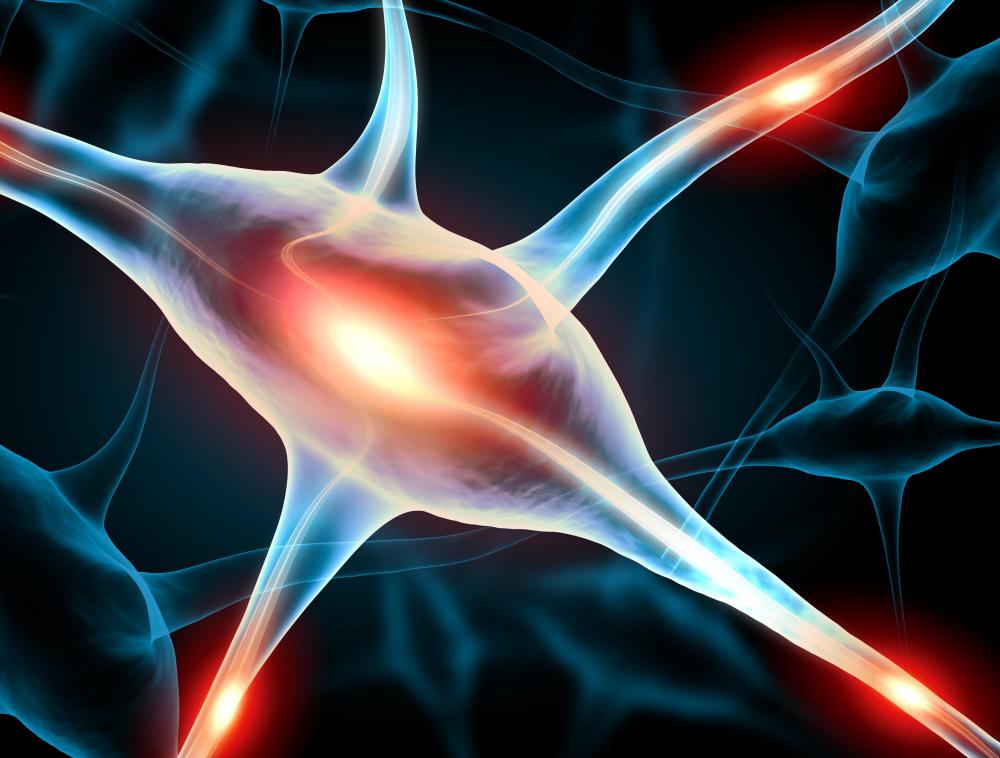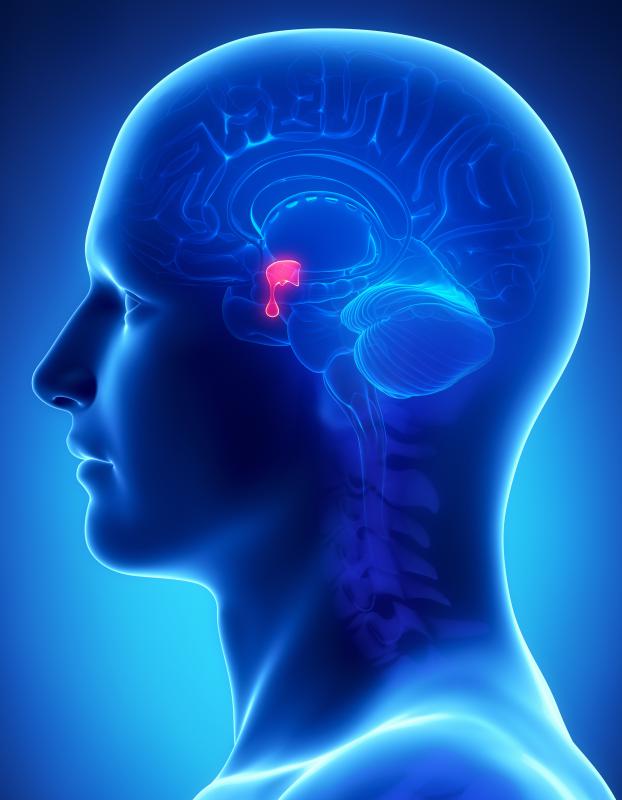At TheHealthBoard, we're committed to delivering accurate, trustworthy information. Our expert-authored content is rigorously fact-checked and sourced from credible authorities. Discover how we uphold the highest standards in providing you with reliable knowledge.
What is the Connection Between the Endocrine System and Nervous System?
The endocrine system and nervous system are both essential to the communication and relay of messages throughout the body. In most cases they work in different ways and have different means of transmitting their signals from one place to another, but the two systems also overlap and work together in a few important respects, particularly when it comes to homeostasis. As a general rule the endocrine system is responsible for regulating hormones and using hormone-based signals to change the body’s responses, while the nervous system is more concerned with impulses and neurological signals that trigger action. Both systems depend on communication between cells to relay messages, though, and a section of the brain known as the hypothalamus affects the behavior of the each system, too.
Understanding Chemical Communications

Cell-based communication has a huge role in many of the body’s functions, from the basic to the very complex. Both the endocrine and nervous systems are primarily responsible for regulating and controlling signals so that things happen the way they should. The biggest difference usually comes down to how and why the communications are happening.
Basics of Nerve Signals

Nerve signals are the most numerous, and also generally the most complex. These depend on fast-moving neurons that travel though the central nervous system, which is generally understood to be the brain and spinal column, and the peripheral nervous system, which is the nerve networks that extend out of the spine and to most parts of the body. Signals touch everything from internal organs to the tips of fingers and toes, and they travel along distinct routes. This sort of communication is usually most concerned with sensation, like pain and temperature sensitivity. The nervous system also sends messages throughout the body that help ensure that the body functions in an optimal manner.
Endocrine Function

Signals that start in the endocrine system, by contrast, don’t usually travel down defined nerves or pathways; rather, they are carried in hormones, which are chemicals that course through the body after their release from the brain’s pituitary region. In order to serve its purpose, the endocrine system uses a series of glands for the secretion of hormones. Glands are cells that identify certain materials in the bloodstream in order to convert them into chemicals that can be used in other areas of the body.

Hormonal messages are chemical byproducts of endocrine glands. They are secreted into the bloodstream and are subsequently taken to various cells. These chemicals then transfer information or instructions to cells related to organs, tissues, muscles, and reproduction. The pituitary gland is the most important gland in the system because it produces hormones that influence the behavior of other endocrine cells.
Hypothalamus Links
Although the two systems are distinct and work independent of each other, they are linked via the hypothalamus. The hypothalamus is located in the center of the brain near the brain stem, and it is basically a collection of cells that dictate the body’s response to external stimuli. It uses the nervous system to control breathing during strenuous physical activity and digestion after large meals, for example. It also influences the endocrine system. Chemicals produced by this part of the brain increase or decrease the amount of hormones released by the pituitary gland, and because of the pituitary gland’s importance to hormonal messaging, control here makes the hypothalamus a key part of the endocrine system.
Role in Homeostasis
Both the endocrine system and nervous system are also essential when it comes to allowing the body to maintain homeostasis. Homeostasis is the state reached when each part of the body functions in equilibrium with every other part. This is achieved through the adjustment of the bodily functions regulated by the endocrine and nervous systems. While the endocrine system primarily governs long term behavior such as growth, the nervous system controls short term behavior like breathing, sweating, and digestion, as well as sensory behavior like sight, sound, smell, touch and taste.
AS FEATURED ON:
AS FEATURED ON:














Discuss this Article
Post your comments